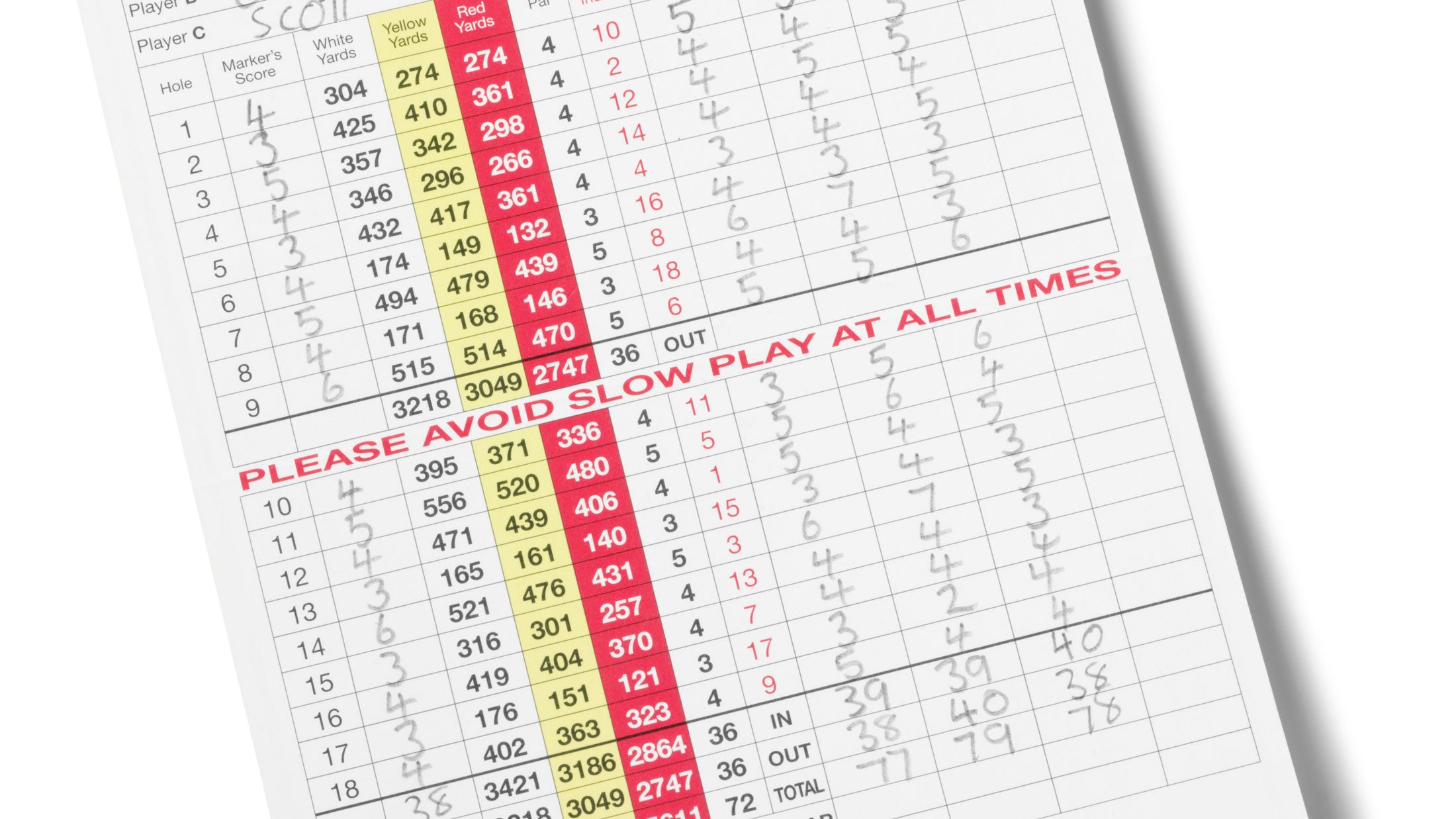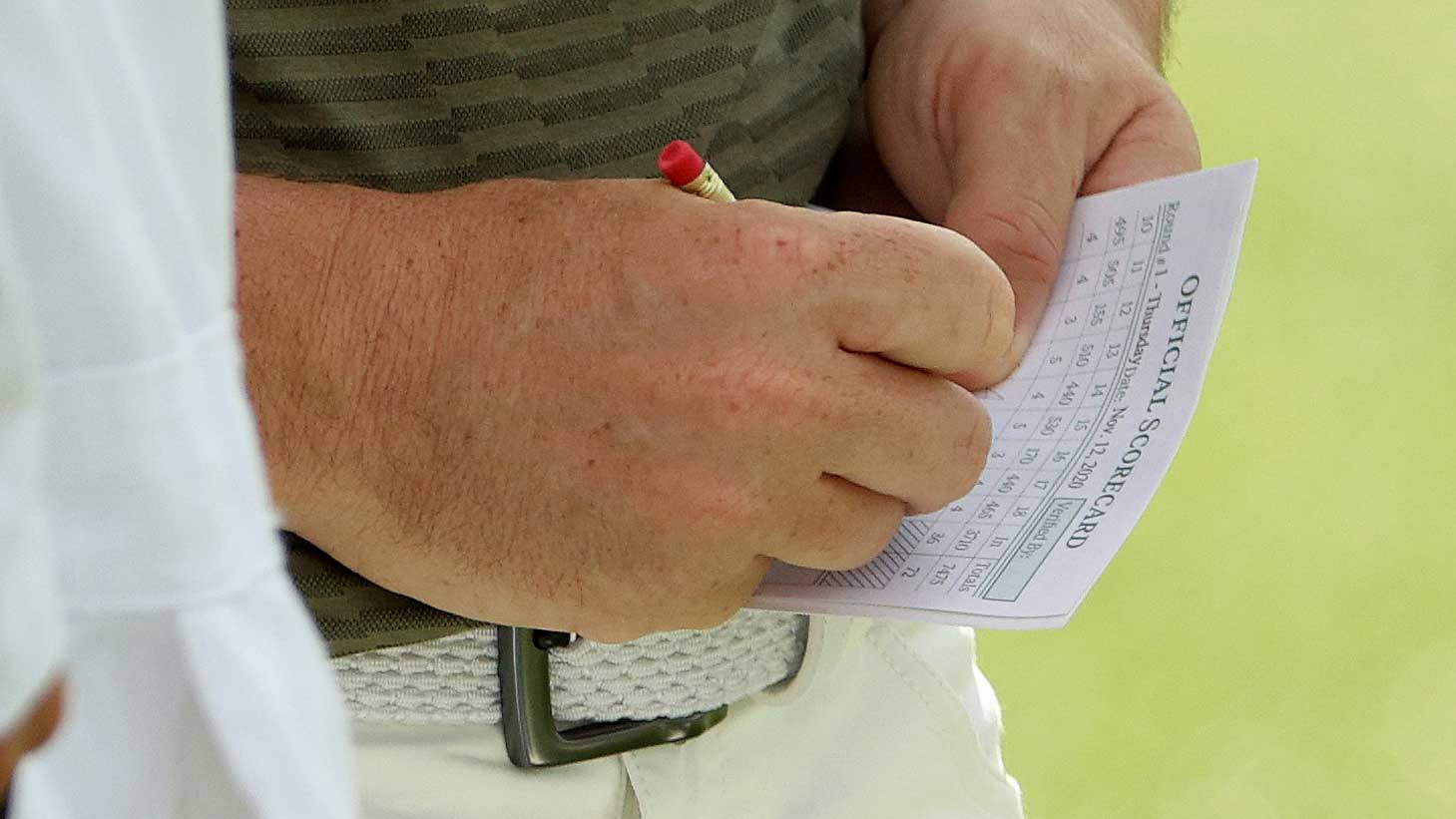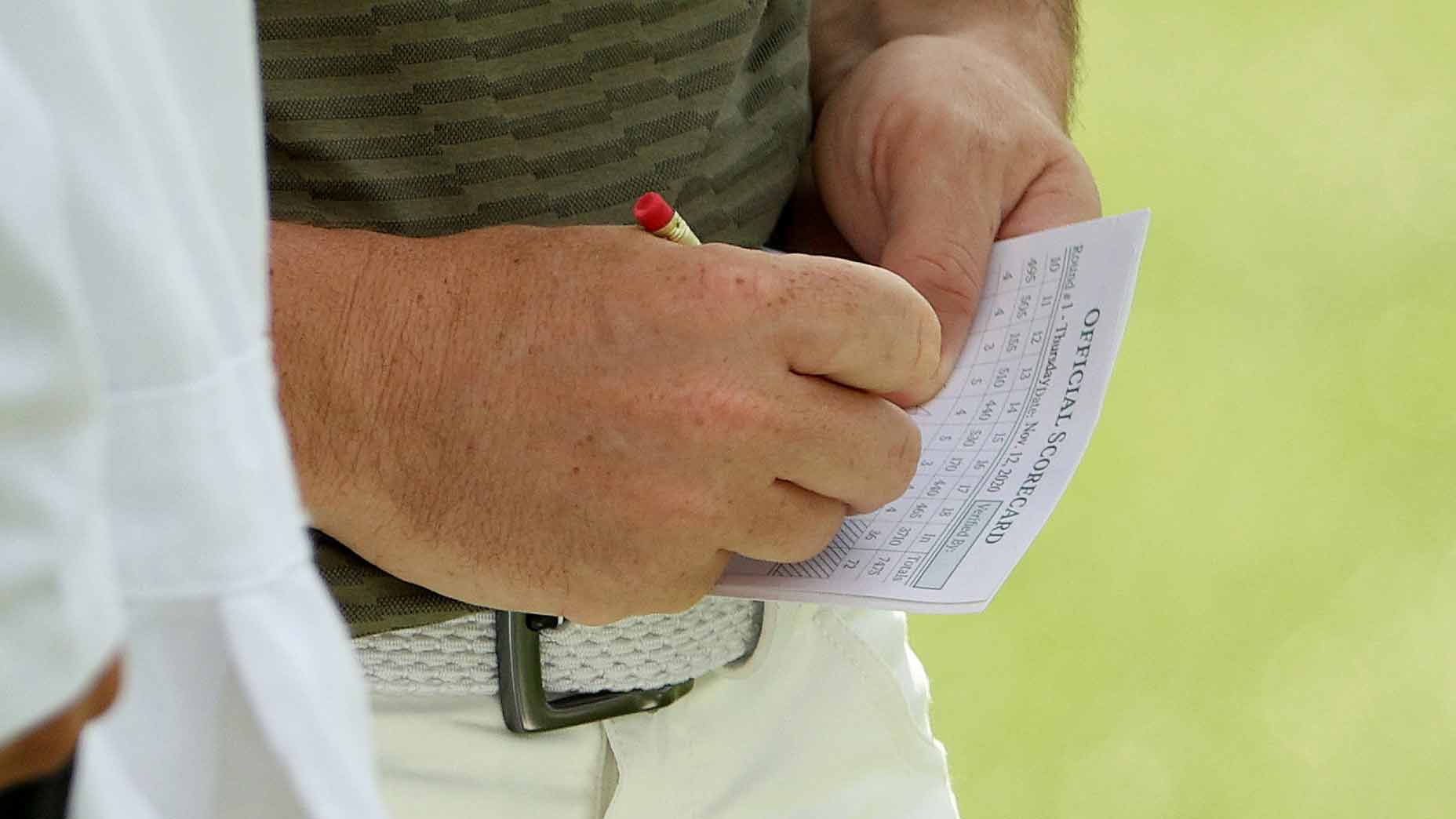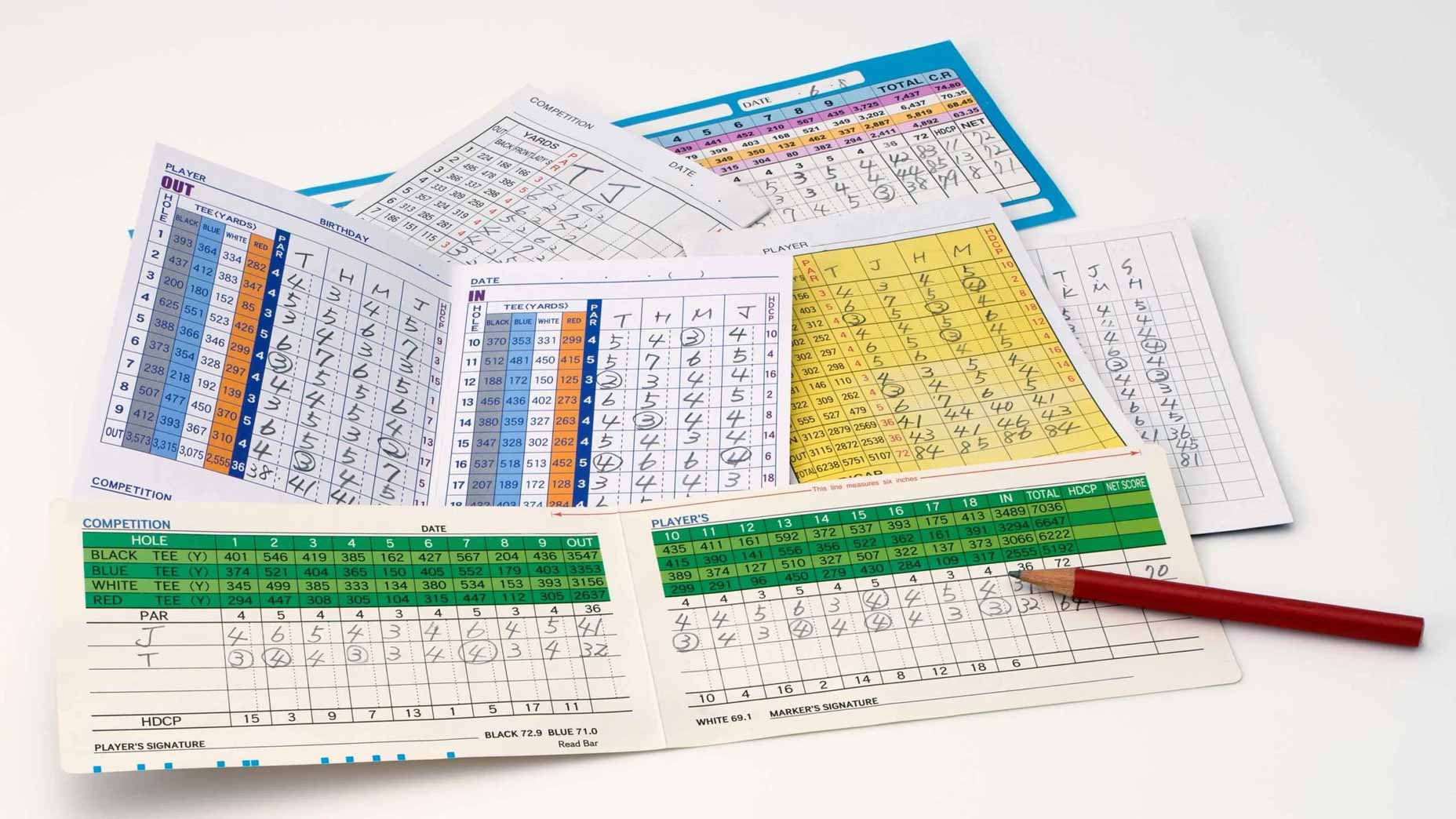Golf is widely seen as a conservative sport, yet it relies on a system of social handouts. Players carry handicaps and give one another strokes. The goal is to establish a level playing field. But people being people, some take advantage. Always have. Always will. What to do about it is another matter.
Here are 10 suggestions for dealing with sandbaggers in your midst.
1. Take pity
The sandbagger is, at heart, a sad and lonely figure, willing to sacrifice integrity and friendship for the sake of a soulless win. Looked on in this light, he or she deserves your sympathy, not your scorn.
This is the average handicap index among golfers in the United StatesBy: Zephyr Melton
2. Turn the other cheek
This is not a swing tip that calls for more rotation of your lower body. It’s a plea to your capacity for forgiveness, a request for recognition that all of us are human and therefore deeply flawed. Except you, of course.
3. Gripe and gossip
This is a wildly popular approach. As the alleged 15-handicap who plays to 2 strides to the podium to accept his 12th consecutive net-division plaque, grouse and grumble to your buddies at the table. Let out a mournful chuckle and shake your head. Although this strategy will change nothing, don’t dismiss it. There is great satisfaction in passive-aggression and petty chatter behind someone else’s back.
4. Leave an anonymous note
You could post it on her locker or the windshield of her car, making plain your displeasure with her dishonesty. What this method lacks in courage it makes up for in clarity. And it’s (slightly) more mature than slashing tires.
Can you still post scores to your handicap? It depends where you liveBy: Josh Berhow
5. Give the cold shoulder
Even those who are self-centered enough to sandbag are not entirely oblivious to social clues. Among groups of golfers, is it not uncommon to gradually freeze the sandbagger out of matches. This tactic takes time. But at some point, the offender gets the hint.
6. Alert the authorities
We’d suggest that you speak to the head of the handicap committee, but the handicap committee is a fading institution. A lot of clubs no longer have them because, well, who in their right mind would want to sit on one? The more likely go-to for your grievance is the head professional, who often winds up in the middle of handicap disputes, navigating a minefield of politics and personalities, among other messes that sandbaggers leave behind.
7. Poke gentle fun
Light-hearted jabs are another way to get your point across. Just beware that you’re walking a fine line. What seems to you like playful ribbing may be taken as fighting words. There is truth in humor, after all. And kidding aside, you are essentially calling them a cheat.
Here’s how many greens in regulation you should hit per round, based on handicapBy: Josh Berhow
8. Confront them directly
This is the old-fashioned pugilist’s approach, moving straight ahead, letting the verbal haymakers fly. Mince no words. Let them have it. With the understanding that you might leave a friendship flat-out on the floor.
9. Be diplomatic
Current political climate notwithstanding, there are ways to hold a conversation without letting it turn into a hostile confrontation. Instead of bluntly branding someone with the s-word, try couching your critique in euphemism. “You’re clearly a great competitor,” you might offer, “with another gear when it really matters. Given those gifts, would it not be sporting to adjust your index to more accurately reflect how clutch you are.” Like most diplomacy, it is worth a try, even if it leads to all-out war.
10. Draw on the data
Good news, someone has already done the hard work for you! His name is George Thurner, 58, a longtime scratch player with a background in data analytics. Two years ago this month, he launched a service called Cap Patrol. Originally intended for use at the private club in Cincinnati where Thurner belongs, Cap Patrol has become a business, and Thurner has made it his full-time job.
As its name suggests, the system functions as a golf-world RoboCop, policing players’ rounds and scores to ensure that performances square up with true potential. As part of its surveillance, Cap Patrol crunches numbers across 43 data points, scanning everything from tournament results to GHIN indices and tee-sheet records, distilling its findings through an algorithm, which in turn flags suspicious rounds.
There’s much more to Cap Patrol than we have space for here, but it’s worth nothing that fabled Oakmont was an early adopter, and the system is currently in use at several hundred clubs across the country, all of them private or semi-private. If you belong to one of them, lucky you. Cap Patrol has you covered. If not, we refer you to methods 1 through 9.












